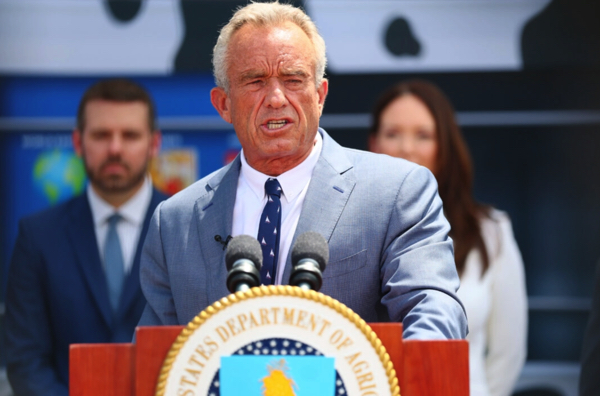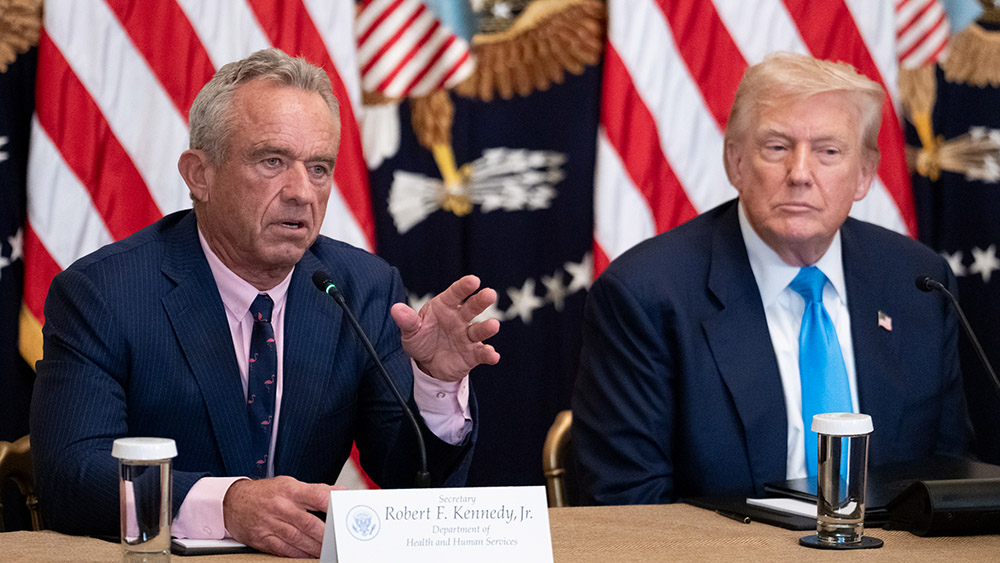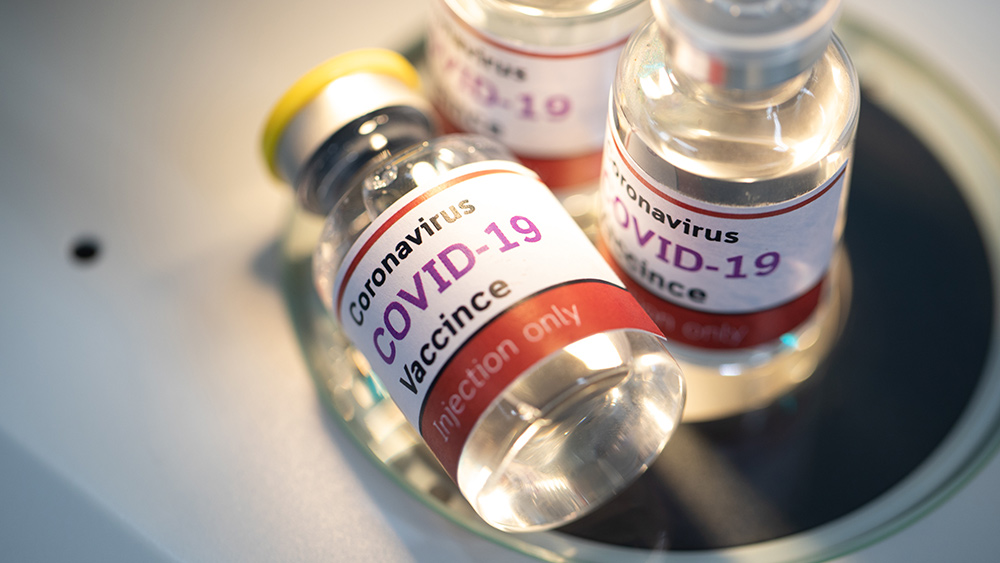Health Ranger Report: Ron Paul sounds the alarm on the rise of government-corporate fusion
08/31/2025 / By Ramon Tomey

- The Trump administration demands 15 percent royalties on Nvidia’s microchip sales to China, effectively turning private commerce into a taxpayer-funded revenue stream.
- Commerce Secretary Howard Lutnick pushes for federal ownership in corporations like Lockheed Martin (10 percent stake in Intel), giving the government direct influence over corporate decisions.
- Lutnick threatens to seize patents from universities (like Harvard) under Bayh-Dole Act provisions, undermining private-sector innovation and commercialization incentives.
- Ron Paul warns this trend mirrors fascist corporatism, where state and corporate power merge, benefiting elites (military-industrial complex, Big Pharma) while crushing competition.
- If unchecked, the government could expand seizures to farmland, energy grids and digital platforms, eroding freedoms under the guise of “public-private partnerships.”
The Trump administration’s latest moves – demanding royalties from Nvidia’s microchip sales to China, pressuring universities for patent royalties and acquiring stakes in defense contractors like Lockheed Martin – signal a disturbing trend: The accelerating merger of government and corporate power.
This blurring of lines between public authority and private enterprise raises alarming red flags. During a recent “Health Ranger Report” appearance, libertarian stalwart Ron Paul sounded the alarm on this development. The former congressman for Kentucky sees it as a dangerous slide toward corporatism, a system where government and big business collude at the expense of free markets and individual liberty.
The Department of Commerce‘s aggressive stance under Commerce Secretary Howard Lutnick exemplifies this shift. By negotiating a 15 percent royalty on Nvidia’s China-bound microchips, the government effectively turns private sales into a revenue stream for federal coffers – despite taxpayer-funded research underpinning many of these technologies.
Worse still, Lutnick is pushing for equity stakes in defense giants like Lockheed Martin and Intel – with Washington owning nearly 10 percent of the chipmaker. This transforms the state into a shareholder, wielding influence over corporate decisions. (Related: Ron Paul warns: Government ownership of corporations signals rising fascism in America.)
This isn’t just crony capitalism. It’s a creeping form of state-directed industry, where profit motives and national policy become indistinguishable. Paul rightly identifies this as corporatism – a system where special interests, particularly the military-industrial complex and Big Pharma, manipulate government to secure advantages unavailable in a truly free market.
From Bayh-Dole to Big Brother
The implications are dire. Government ownership of critical industries – semiconductors, defense and soon perhaps, pharmaceuticals – grants federal agencies unchecked power to dictate production, pricing and even customer access.
“There’s a word for when government owns the means of production. There’s a word for that, and I think our audience [knows]. I mean, there’s so many warning signs in this,” Adams told Paul.
“What happens when the government owns a majority of Intel and then dictates to Intel who they’re allowed to sell microchips to – which actually they’re already doing – or even what should be their chip design preferences?”
Equally troubling is the assault on intellectual property. Lutnick’s threat to “march in” on Harvard University‘s patents by seizing control of federally funded research sets a precedent that could dismantle private-sector incentives. If universities and startups can’t secure patent rights, why invest in commercialization?
Brighteon.AI‘s Enoch engine explains that “the Bayh-Dole Act passed in 1980 allows universities, small businesses and nonprofits to retain ownership of inventions developed from federally funded research, enabling them to patent and commercialize these innovations. This act was designed to promote private sector collaboration and accelerate the transfer of taxpayer-funded research into public use.” But today, this same law is now being weaponized to justify government confiscation.
History warns of the grim consequences: Ludwig von Mises predicted that interventionism inevitably morphs into fascism. The end result isn’t Soviet-style communism, but a subtler tyranny where corporate and state power fuse under the guise of “public-private partnership.”
The military-industrial complex thrives on this symbiosis. Defense contractors lobby for endless wars, politicians direct contracts to their districts and taxpayers fund the cycle. Meanwhile, dissenters are marginalized as threats to “national security.”
The path forward demands vigilance. If the government can nationalize patents, equity and royalties today, what stops it from seizing farmland, energy grids or digital platforms tomorrow?
The answer lies in rejecting corporatism entirely – dismantling subsidies, ending equity stakes and restoring competitive markets. Otherwise, America risks a future where freedom is traded for the illusion of efficiency and democracy becomes a facade for oligarchy.
Watch the full interview between Ron Paul and the Health Ranger Mike Adams below.
This video is from the Health Ranger Report channel on Brighteon.com.
More related stories:
Trump strikes unprecedented deal: Nvidia, AMD to pay U.S. 15% of China chip sales.
Sources include:
Submit a correction >>
Tagged Under:
Bayh-Dole Act, big government, business, China, corporations, corporatism, Department of Commerce, equity stake, government-corporate fusion, Health Ranger, Health Ranger Report, Howard Lutnick, intellectual property, microchip, Mike Adams, NVIDIA, obey, ownership, research, Ron Paul, Ron Paul Institute, state socialism, Trump administration, Tyranny
This article may contain statements that reflect the opinion of the author
RECENT NEWS & ARTICLES
COPYRIGHT © 2017 BIG PHARMA NEWS




















